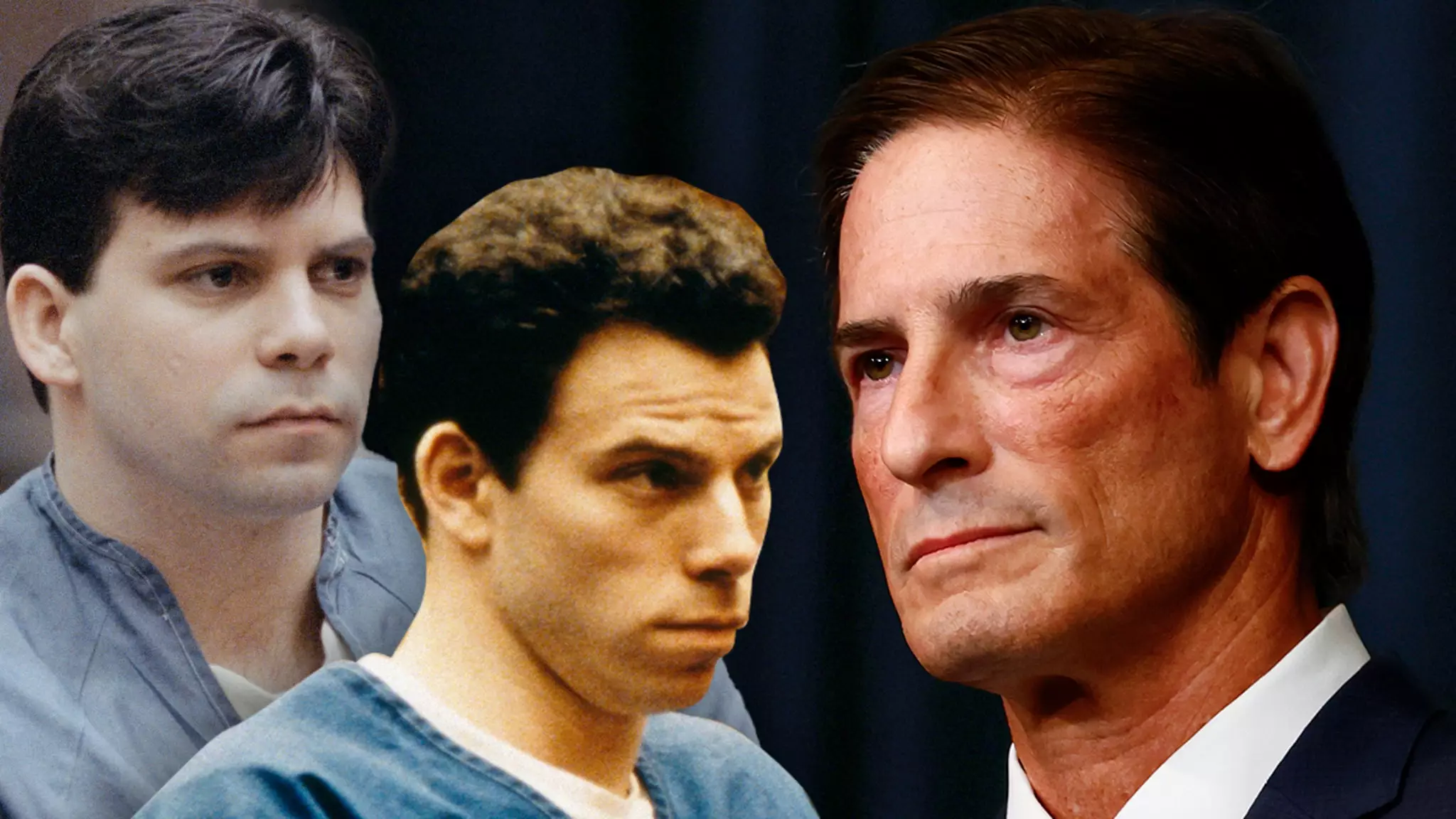The ongoing saga of the Menendez brothers, Erik and Lyle, has recently taken a troubling turn. As the legal proceedings surrounding their case intensify, the relatives of the brothers have stepped forward, alleging that Los Angeles County District Attorney Nathan Hochman is compounding their trauma rather than offering them the support they deserve. Their voices ring loud against the dismissive and patronizing demeanor they claim to have experienced during a recent meeting, sparking a civil complaint lodged with the United States Attorney’s Office.
The Allegations of Hostility
At the heart of this controversy lies a glaring accusation: Hochman is not treating the Menendez family with the respect and dignity that victims of crime are entitled to. Tamara Goodell, a cousin of the brothers, has taken a brave step in detailing how Hochman’s attitude has been less than helpful. Instead of providing a safe space for family members to express their thoughts and concerns, Hochman purportedly turned the encounter into an opportunity for self-promotion—highlighting his own experiences and grievances rather than listening to the pain and struggles of the family. This is a striking departure from what should be the role of a public servant.
A Cycle of Revictimization
The Menendez family describes feeling not only dismissed but emotionally battered during the meeting. The dynamics of power in such encounters are crucial; victims should never leave a meeting with a public official feeling intimidated. Hochman’s alleged behavior has resurrected the psychological wounds that the family had long struggled to heal. The indignation surrounding this situation points to a broader issue: the systemic failure to prioritize victim representation in legal circumstances. It begs the question: how can we trust individuals entrusted with upholding the law if they themselves contribute to a culture of fear and disrespect?
Legal Rights and Ethical Responsibilities
The family’s complaint is grounded in Marsy’s Law, which was enacted to bolster the rights of crime victims in the justice process. Hochman’s actions, if the allegations hold true, could represent a bypassing of this critical legislation. The law was designed with the spirit of compassion, emphasizing that victims ought to be secured a voice in the proceedings that affect their lives profoundly. To hear that a district attorney could potentially violate such rights casts a shadow on the ethical integrity of the justice system itself.
A Call for Compassion in Justice
As the conversation around criminal justice reform continues, the Menendez family’s experience serves as a poignant reminder of the fundamental need for compassion and respect. Their brave stance against perceived violations is not just about their personal distress; it highlights a pervasive issue affecting many victims. The unfortunate reality is that many individuals within the justice system may forget that those who suffer from crime deserve consideration that extends beyond mere statistics or case files. It’s a collective responsibility to advocate for victims, giving them a powerful platform to express their pain and challenges without fear.

Leave a Reply